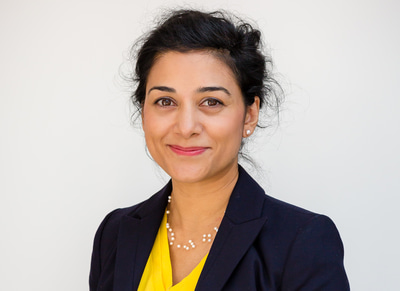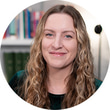- OT
- Life in practice
- Practitioner stories
- Navigating a path into optometry with help from an inspiring lecturer
My inspiration
Navigating a path into optometry with help from an inspiring lecturer
Yuan Gao is a pre-reg optometrist at Western Eye Hospital, Imperial College Healthcare NHS Trust. OT spoke to Gao about his university experience and how one lecturer helped him to succeed

09 January 2022
Who is your inspiration and can you tell us more about them?
My inspiration is Rashmi Mathew, a consultant ophthalmic surgeon at Moorfields Eye Hospital. She’s also an associate professor at UCL Institute of Ophthalmology At UCL, where I took my masters in ophthalmology, I was the course representative. In this role I had the opportunity to speak to many of the lecturers. Mathew was the module lead for glaucoma and one of lecturers I was in touch with most often. During this time, she really helped me, both academically and personally; she’s a very passionate person particularly when it comes to education.Why did you decide to study optometry?
Since the age of five or six I visited eye hospitals with my father as he’s a consultant ophthalmologist in China. He was a huge inspiration to me growing up and certainly helped me realise that I wanted to become an eye specialist in either ophthalmology or optometry. However, the main reason I decided to study optometry is because I see a great potential in this profession.
In my opinion, at present, optometry is a profession that is experiencing a massive transformation with the emerging need for ophthalmic clinicians. Ophthalmology is one of the busiest sub-specialities in the NHS, with so many patients in the outpatient departments. I think optometrists could play an even more central role in the hospital eye service. After all, with the recent developments in optometry education over the past decade, optometrists have the knowledge, so the potential to be more involved is certainly there.
When I was looking into studying optometry, I realised quite quickly that there are so many interesting opportunities to discover within the profession. I learnt that I could play an essential role in primary eye care or work in optometrist-led clinics if I chose to do so. As a young person entering this profession the potential to lead this transformation, along with other colleagues, really excited me.
My first impression of Rashmi was someone that is very creative, reflected in the way she presented her lectures. I always felt engaged and interested
Can you remember when you first met her and what your first impressions were?
Due to the pandemic and the subsequent lockdown restrictions most of my lectures took place online, so I didn’t get the chance to meet Mathew in person. The first time I met her was virtually via an online lecture on her sub-speciality subject, glaucoma. Her lectures were delivered with so much passion and with many different elements; this really helped bring the subject to life. My first impression was of someone that is very creative, reflected in the way she presented her lectures. I always felt engaged and interested.What attributes do you most admire about her?
The first attribute I admire in Mathew is her kindness. She was always helpful and supportive to me throughout my studies. At university, I hosted a podcast with the UCL Institute of Ophthalmology. In our second episode I interviewed Mathew about how to be a good clinician and she said, “being kind is so important.” This really inspired me, especially when I started my pre-reg and I was learning what kind of clinician I wanted to be. I truly believe that she practices what she preaches, not only does she offer advice that inspired me to be kind to everyone I work with but she’s also very kind herself.
Another attribute I would like to mention is her passion for education, which has inspired me. In the future, once I’m fully qualified, I can envisage myself becoming involved in and focusing on education. I believe education is so important, even more so over the next decade because the optometry profession is changing rapidly. The field of optometry is expanding, from optometrist-led clinics to myopia control; so many more elements could be added to the mandatory training both for undergraduates and post-graduates. I would like to explore the options for optometrists by becoming an educator.
Did she play a part in your university experience or shape any of or shape any of your future career decisions?
Yes, certainly. Mathew is the module lead for the glaucoma sub-specialty at the UCL Institute of ophthalmology, so yes, she had a huge influence on my university experience ranging from her lectures to teaching methods. She had a huge impact on me by offering me support throughout my studies especially with regards to my aspirations to become an educator once I am qualified. Overall, she certainly shaped my experience and inspired me in so many ways.Is there a field within optometry that she specialises in?
She specialises in glaucoma surgery and cataract as a consultant ophthalmic surgeon, but she’s also taken on a new role in optometry education, as one of course leads alongside Jay Varia, for advanced practice in ophthalmology and optometry in UCL. This course is designed for eye care professionals in many different disciplines, but primarily for optometrists.
She taught me the importance of being kind whether this was working with students, optometrists or patients. I think being kind and considerate is a key component, often overlooked, but essential in a caring profession such as healthcare
Can you describe a scenario where she impressed you?
She organised a micro surgical workshop for students on my course. I was very impressed by the way she delivered her teaching during this session; it was an invaluable experience and I felt very lucky to have her as my lecturer.Can you share one thing you’ve learnt from them?
Once again I would have to emphasise how she taught me the importance of being kind whether this was working with students, optometrists or patients. I think being kind and considerate is a key component, often overlooked, but essential in a caring profession such as healthcare.What advice have she given you about your future career?
I haven’t been given any individual advice specific to my career, however in the UCL podcast in which I interviewed Mathew she offered some very useful advice for optometry students. If you would like to listen her advice, it’s available on Spotify.Is there anyone else that you would like to mention that has inspired you throughout your optometry studies?
Instead of an individual person I would like to mention an organisation, the Imperial College Ophthalmology Research Group (ICORG). Being a part of this group changed my life and career trajectory for a few different reasons.Initially, when I started studying optometry, I wanted to become a hospital optometrist, however after numerous setbacks and rejections I started to think that perhaps this might not be the right career path for me. I almost gave up in applying for a pre-reg in a hospital setting until I decided to express my concerns to my university tutor, Professor Francesca Cordeiro. Shortly afterwards she suggested I attend the Imperial College Ophthalmology Research Group (ICORG) and help them with a research project, which I thought was a great idea. At the ICORG I assisted the clinical research fellow, Dr Timothy Yap, on a project related to glaucoma. This was a great experience, because I was also able to see patients under supervision and learn more about using medical devices such as optical coherence tomography and Heidelberg scans. I really valued everyone I got the opportunity to work with at the ICORG. It was great to be a part of and inspired me to become a better clinician.
If you could help to inspire someone, what words of advice would you offer?
Take your time to discover the world. Explore all the possibilities and opportunities available to you within optometry, not only what you study. The future of optometry is up to us, it’s as simple as that.
COVID-19 focus
Has your chosen inspirational person been affected by the pandemic? If yes, can you share how they’ve adapted?
The delivery of the glaucoma module was certainly affected due to the COVID-19 pandemic. Before the pandemic the module was taught face-to-face, however due to the lockdown restrictions I was taught everything online. So the teaching methods were certainly impacted, but with a creative and inspirational lecturer like Mathew, it didn’t affect my studies or learning.How have you managed your studies since the pandemic started? What challenges have you faced?
I was studying at home during the pandemic without the usual contact time with lectures, other students or access to university facilities, so I sometimes found it difficult to find ways to productively manage my time.
For one of the UCL podcast episodes I worked on I interviewed Dr Pearse Keane, professor of artificial medical intelligence at UCL. He offered some really helpful advice about time management. He said: “It’s really simple. Work with people you like and on projects you find interesting, and this really helps you to keep productive.” He also highlighted the importance of having a timetable or schedule detailing everything in your working day. I applied his advice and purchased myself a calendar, writing to do lists and categorising my tasks in order of priority. I found this very helpful and learnt from him how to keep productive and used my calendar throughout my university experience.


Comments (0)
You must be logged in to join the discussion. Log in